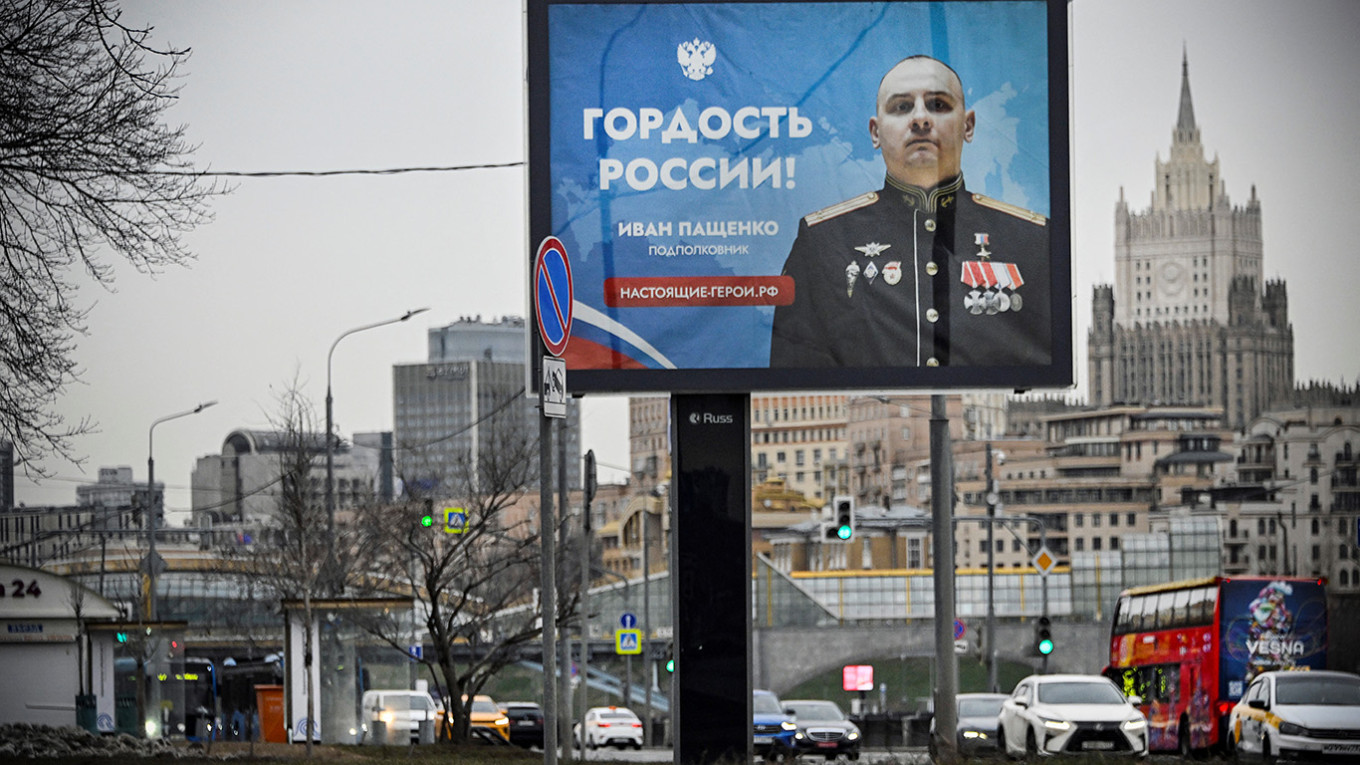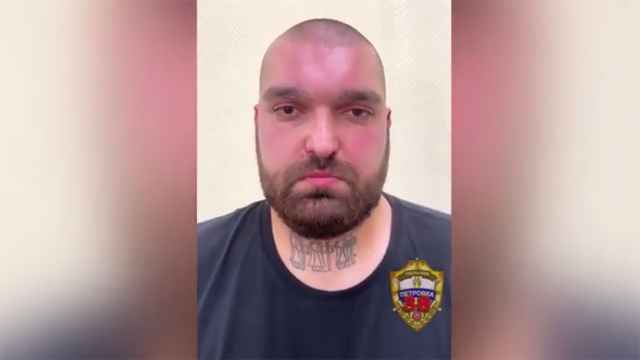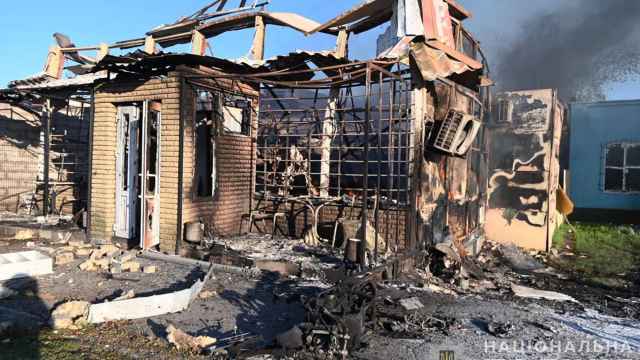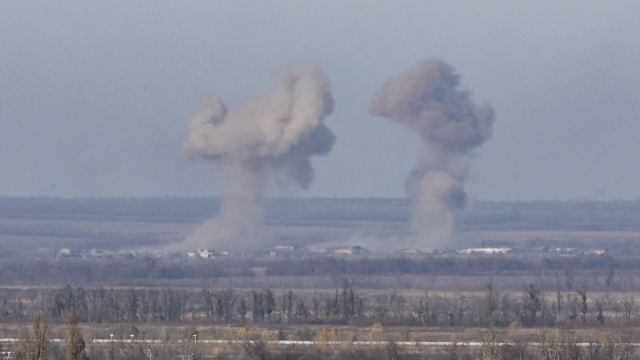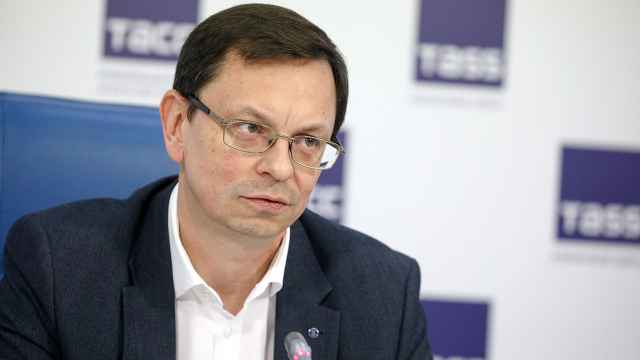Monday marks three years since the Kremlin launched its full-scale invasion of Ukraine, which had already been at war with Moscow-backed separatist forces in its east since 2014.
Three years on, the invasion has cost Ukraine more than $100 billion in infrastructural damage, the lives of more than 11,973 civilians — including 622 children — and tens of thousands of soldiers.
In Russia, the scars of the war might not be as visible outside of border regions like Belgorod and the embattled Kursk region.
Yet Russia’s war has also taken the lives of tens of thousands of its own soldiers and civilians — and millions more ordinary Russians have borne the brunt of deepening political repression and sweeping economic sanctions.
To the front line and back
At least 95,000 Russian servicemen have been confirmed killed since the start of the invasion, according to an independent tally of war casualties maintained by the BBC Russian service and Mediazona, with the real number believed to be far higher.
“Since the special military operation began, I no longer live my life but merely exist in this world. I lost my only son [in the war]. I have my daughters to care for, so I have to keep living and go to work,” said a middle-aged woman from the Mongolia-bordering republic of Tyva.
“My husband started drinking heavily after our son’s death, but he stopped after I once tried to take my own life. Of course, I haven’t told any of this to people around me — I just often cry quietly when no one is around,” she told The Moscow Times on condition of anonymity.
Since the first year of the war, Tyva has consistently ranked as the region with the highest number of war losses per 10,000 working-age men, according to statistics provided by Maria Vyushkova, the leading expert in Indigenous and regional war losses.
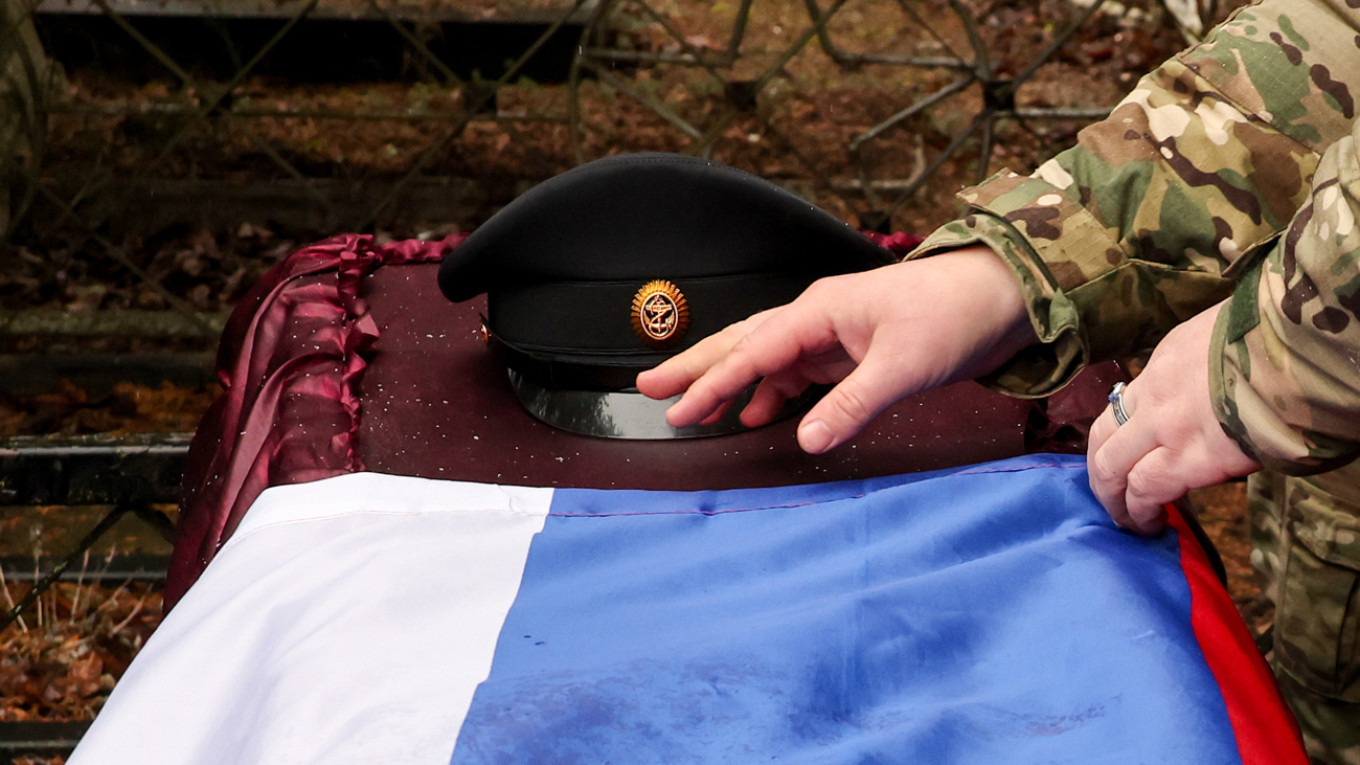
A republic with a total population of slightly over 336,000, Tyva’s total losses confirmed by volunteers amount to 948 people.
“There are many funerals here, and there is much more drinking and aggressive behavior [from men] — that’s how people choose to express their pain and dissatisfaction,” said the Tyvan woman.
On the front lines, Russian forces have recently advanced in Ukraine’s Donetsk and Kharkiv regions, according to the U.S.-based Institute for the Study of War.
Support for the Armed Forces among Russian citizens remains high at 78% — with 43% “definitely” supporting and 35% “somewhat” supporting the army — according to a February survey by the independent Levada Center pollster.
At least 15% of Levada’s respondents said they do not support the military’s actions in Ukraine.
“Society has developed a demand for healthy patriotism — it has become inappropriate to express negativity toward the military or national symbols, which is nice,” a Russian serviceman told The Moscow Times.
But for Russians who have witnessed the war penetrating their country’s borders, the picture is no longer black and white.
Dozens of settlements in Russia’s Kursk region, which borders Ukraine, have been under Kyiv’s control since last August.
Relatives estimate that around 3,000 people still reside in these areas. Locals say the authorities are doing little to support those left behind, despite repeated pleas for help and efforts to reach out to official channels.
“There is a deep and growing resentment toward the authorities,” a woman from the Kursk region whose parents are missing in Kyiv-occupied territory told The Moscow Times.
"We are asking for our loved ones to be evacuated from there. But we don’t understand why no one is making any effort to get them out," she said.
The Bashkir tragedy
Three years into the full-scale invasion of Ukraine, the Ural Mountains republic of Bashkortostan has solidified its leading position in the war losses tally with 4,156 confirmed deaths as of February.
While the streets of the republic’s capital Ufa are adorned with pro-war billboards and banners with the letters “V” and “Z,” war propaganda is less prominent in the many small towns and villages where most of the region’s population lives.
“A village is like a different world compared to the city…people have their own problems and worries, but they still talk about the war a lot,” said Altynay, a native of a village in Bashkortostan’s southeastern Baymak district who asked to be identified by a pseudonym.
“At tea gatherings [a social tradition among Indigenous Bashkirs], people discuss how many buses with coffins they saw arrive, whose sons were killed or taken to the front, recall how soldiers who came back for a short-term leave raped women in villages…There are many of these stories,” Altynay told The Moscow Times.
A lack of opportunities for stable income at home forces many men from Bashkir villages to take on rotational work at oil and gas sites in the Russian North and Siberia. But since the start of the war, the promised 1.5-million-ruble ($15,400) payout for signing a military contract has made enlistment another attractive option for earning money.
“This might sound very harsh, but I think that right now, men in our village have only two ways to make a living: war and rotation work,” said Altynay. “An absence of husbands means even more work for women. Life in a village requires a lot of physical labor and it’s hard to sustain without men.”
Last January, Baymak, the capital of the Bashkir district of the same name, became the epicenter of some of the largest wartime protests in Russia as several thousand people protested the imprisonment of prominent Indigenous activist Fayil Alsynov.
The Baymak protests were followed by sweeping arrests of activists, paving the way for the largest political trial in modern Russian history. This meant even more able-bodied men were taken away — not to war, but to prison.
“For villagers, 80 arrested people means that someone’s acquaintance or a friend of a friend is definitely in prison,” explained Altynay.
“People are devastated, of course, but they continue to live their lives,” she added. “In a village, you simply can’t survive otherwise. You can’t just lie around depressed, you have to get up every morning to feed the cows and take care of other work around the house.”
‘Everyone is staying silent’
Bashkortostan is no outlier among Russia’s regions and cities when it comes to repressions catalyzed by the war.
In the Kremlin’s quest to promote “traditional values,” Russian authorities have intensified their crackdown on the LGBTQ+ community, outlawing it as “extremist” and pushing many queer spaces further underground or forcing them to shut down entirely.
“A lot has changed since the war began,” a member of Moscow’s LGBTQ+ community told The Moscow Times. “Many clubs, especially gay clubs and sex parties, have either gone deeper into hiding — or disappeared altogether.”
This month, the UN special rapporteur on the human rights situation in Russia sounded an alarm over the fate of the "more than 2,000 political prisoners" in Russian prison.
She said eight died in prison in 2024 and identified at least 120 in "imminent danger," saying they should be released immediately due to their state of health.
The fear of facing grave consequences for expressing dissent has seemingly crept into all public spaces with the privacy of one’s own home remaining the only haven for many — an echo of the Soviet era.
“Many people have become more closed off since the war began; you can no longer talk like you used to,” said a middle-aged man from the republic of Tyva who requested anonymity.
“Before the war, you could chit-chat with the person sitting next to you in line for an appointment at a local hospital, but now everyone there remains silent,” he said.
Economic plight
When President Vladimir Putin ordered troops into Ukraine, many experts predicted that the Russian economy would collapse not long after, especially after the country was hit with punishing Western sanctions.
Although that has not happened, Russia last year posted its largest budget deficit since the start of the war and the country has depleted its rainy day fund by 57%.
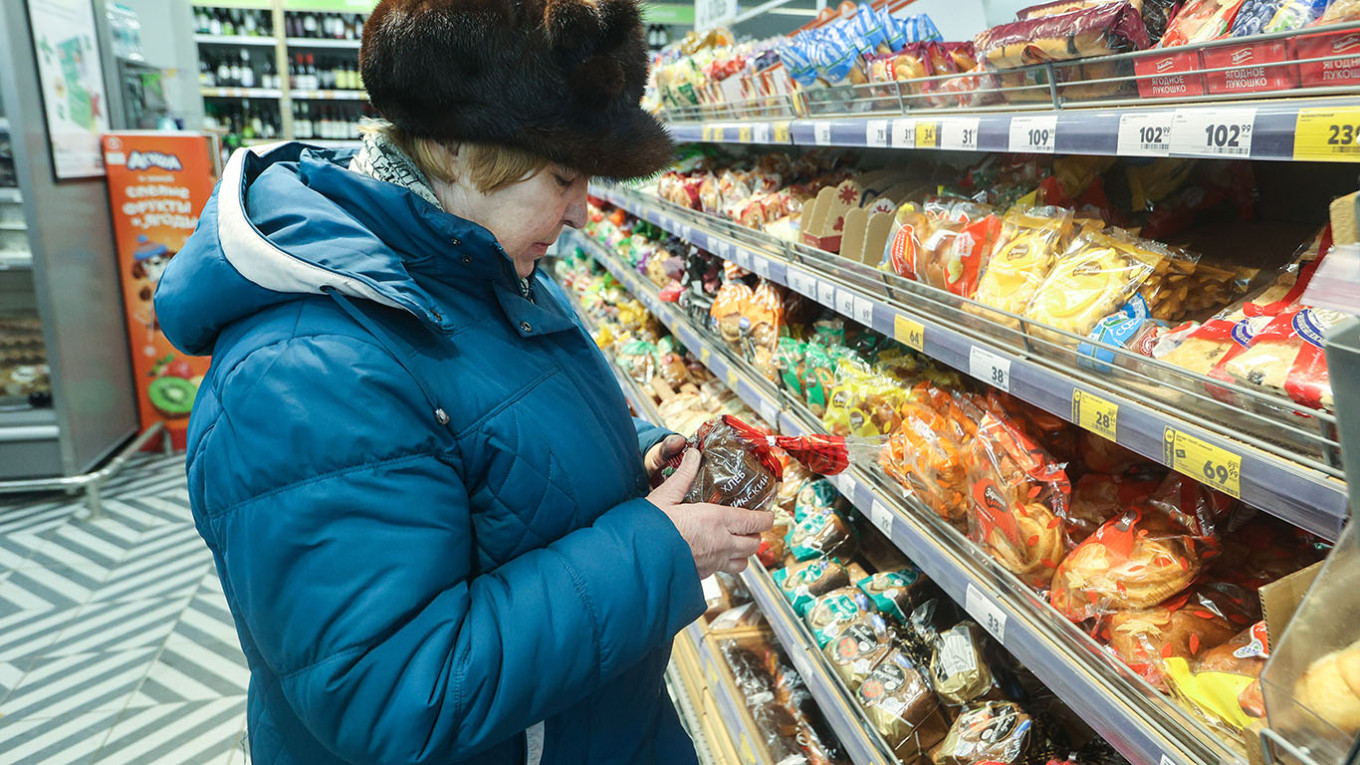
However, analysts say the Kremlin still has enough resources to support its war spending through at least 2025.
Spending on defense and the military, which increased by more than 100% between 2021-2024, is now estimated to account for about 40% of Russia’s total federal spending.
This, combined with Russia's reluctance to make deep budget cuts to social and other programs, meant the country's spending ballooned by 62% between 2021 and 2024.
Russia’s runaway consumer price inflation (CPI) rose to 9.5% y/y in December, with food inflation surging to 11.1% y/y from 9.9% in November.
The rising food prices might be the one impact of the war that almost every Russian has felt.
“Food and fuel prices in our republic have always been higher than in neighboring regions, so I didn’t feel how much the prices have increased right away,” said the man from Tyva.
“Six months into the war, I noticed the first sign [of inflation] — car parts became more expensive. Now the cost of everything…is five times more than pre-war,” he told The Moscow Times.
Change in sight?
The U.S. and Russia kicked off talks in Saudi Arabia last week after years of nearly frozen relations, fueling speculation that the war could soon come to an end.
Ordinary Russians voiced mixed reactions to the news, with hopes for an end to the bloodshed but doubts over whether the talks would bring lasting peace or improve life at home.
In conversations with The Moscow Times, some raised questions about what happens when tens of thousands of Russian war veterans return to civilian life and said they feared it would bring an increase in violent crime, domestic violence and sexual assault.
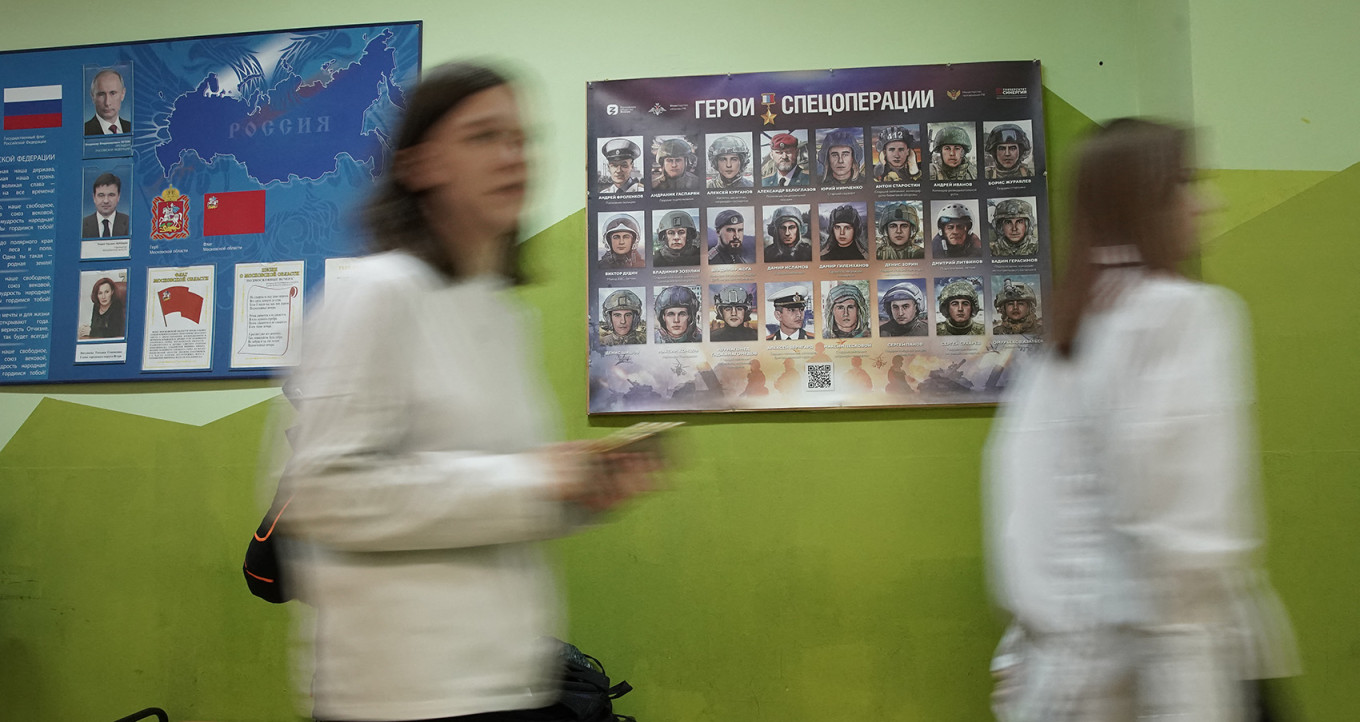
While some soldiers have complained about a lack of support with reintegrating into society after service, one serviceman who spoke with The Moscow Times said the process works well.
“There are good programs to help military veterans find jobs in different industries, and they actually work — a lot of my acquaintances who were discharged for health reasons are now employed in good positions with decent salaries or are getting an education for free,” he said.
But for the most part, people in Russia seemingly want an end to the fighting but lack hope for a better future.
“I hope that if peace negotiations happen, they will stop taking our people [to war]. I want all of this to end as soon as possible. There are already so few of us Tyvans, and this war has taken the lives of many more,” said the woman from Tyva.
“But nothing will change in my life and here in Tyva,” she said. “Things can only get worse.”
A Message from The Moscow Times:
Dear readers,
We are facing unprecedented challenges. Russia's Prosecutor General's Office has designated The Moscow Times as an "undesirable" organization, criminalizing our work and putting our staff at risk of prosecution. This follows our earlier unjust labeling as a "foreign agent."
These actions are direct attempts to silence independent journalism in Russia. The authorities claim our work "discredits the decisions of the Russian leadership." We see things differently: we strive to provide accurate, unbiased reporting on Russia.
We, the journalists of The Moscow Times, refuse to be silenced. But to continue our work, we need your help.
Your support, no matter how small, makes a world of difference. If you can, please support us monthly starting from just $2. It's quick to set up, and every contribution makes a significant impact.
By supporting The Moscow Times, you're defending open, independent journalism in the face of repression. Thank you for standing with us.
Remind me later.




